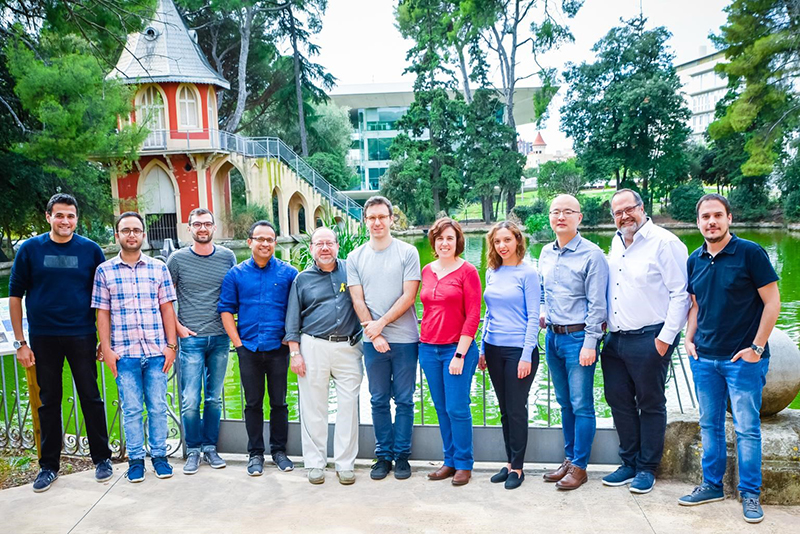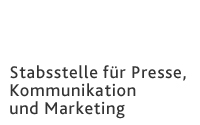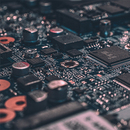Executive Department for
Press, Communication and Marketing
Adolf-Reichwein-Straße 2a Gebäude AVZ (Gebäudeteil AR-NA) 57068 Siegen
Phone: +49 (0)271/740-4915 Fax.: +49 (0)271/740-4911 E-Mail: presse@uni-siegen.de
Installing cognitive algorithms in small computers
How can limited-capacity devices such as smartphones run highly complex AI algorithms in the future? In the Wiplash project, researchers at the University of Siegen are working on a solution with a new computer architecture.
 The field of artificial intelligence is
developing at breakneck speed. Today, automatic image
recognition is advancing rapidly and machines have long
been capable of learning games by themselves. These are
just two of countless examples. It seems the sky's the
limit, if only we could overcome the technical constraints.
The problem is that AI is based on complex algorithms and
consumes vast computer processing power. This often
requires large computer centers. Currently, it is
practically impossible to transfer the algorithms to
smaller devices like smartphones. In the EU-funded Wiplash
project, a team from the University of Siegen and
scientists from all over Europe are working on changing
this. "It's about taking AI out of large computer centers
and transferring it to mobile platforms", says Prof. Dr.
Haring Bolívar, the Chair of High Frequency and Quantum
Electronics.
The field of artificial intelligence is
developing at breakneck speed. Today, automatic image
recognition is advancing rapidly and machines have long
been capable of learning games by themselves. These are
just two of countless examples. It seems the sky's the
limit, if only we could overcome the technical constraints.
The problem is that AI is based on complex algorithms and
consumes vast computer processing power. This often
requires large computer centers. Currently, it is
practically impossible to transfer the algorithms to
smaller devices like smartphones. In the EU-funded Wiplash
project, a team from the University of Siegen and
scientists from all over Europe are working on changing
this. "It's about taking AI out of large computer centers
and transferring it to mobile platforms", says Prof. Dr.
Haring Bolívar, the Chair of High Frequency and Quantum
Electronics.
This requires novel computer structures which replace the
current von Neumann architecture. Today, the microprocessor
and memory inside a computer are separate. That costs too
much time and energy. It prevents effective and rapid
processing of complex AI algorithms. "We're developing a
new form of hardware, a kind of mutant consisting of both
memory and microprocessor similar to the synapses in the
human brain," explains Prof. Haring Bolívar. "This is
crucial to achieve cognitive technical systems that can
work nearly as efficiently as the brain. For example, the
human brain only needs a short time and a low power of 20
watts to learn a sequence of images. Today the same
learning process takes complex computers with a large
number of processors (GPUs) weeks and a total power
consumption of 400 kilowatt-hours." Haring Bolívar's team
in Siegen is responsible for the subunits of these
"mutants" and for realising communication between the
intelligent chips. For this, they intend to use terahertz
radiation.
"This is a great project. It's also a validation for us
that we won through in this most competitive area of
European research," says Prof. Haring Bolívar. He is
delighted about securing a place in the EU-funded Future
and Emerging Technologies program and about the cooperation
with renowned partners. Wiplash has a total volume of EUR 3
million. The University of Siegen will receive EUR 420,000.
During the invitation to bid, 400 applications were
submitted. With 4.85 of a possible 5 points, Wiplash
achieved an excellent rating, placing it among the best 1.8
percent of projects in Europe. Partners in the project are
the Politècnica de Catalunya, the École Polytechnique
Fédérale de Lausanne, RWTH Aachen, the University of
Bologna, IBM Research Zurich, and AMO GmbH.

The Wiplash research team led by Prof. Peter Haring Bolívar
(2nd right) of the University of Siegen at the kick-off
meeting in Barcelona. (The photo was taken at the meeting
in November 2019.)



